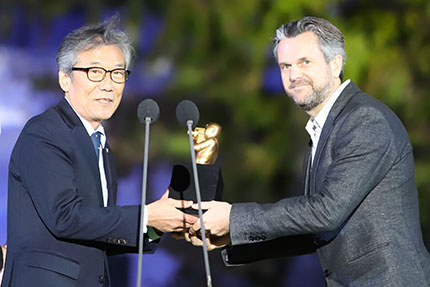
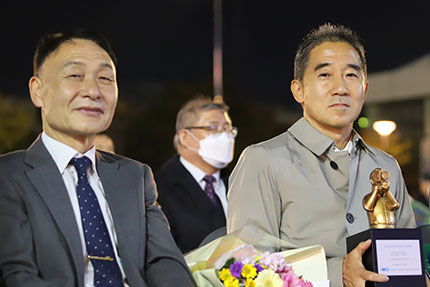
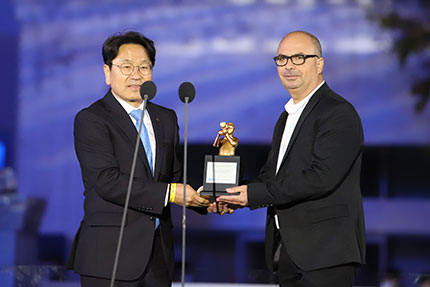
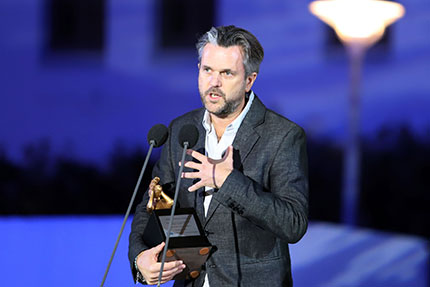
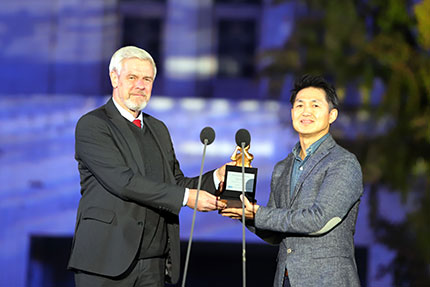
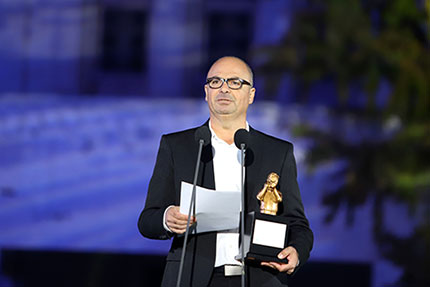
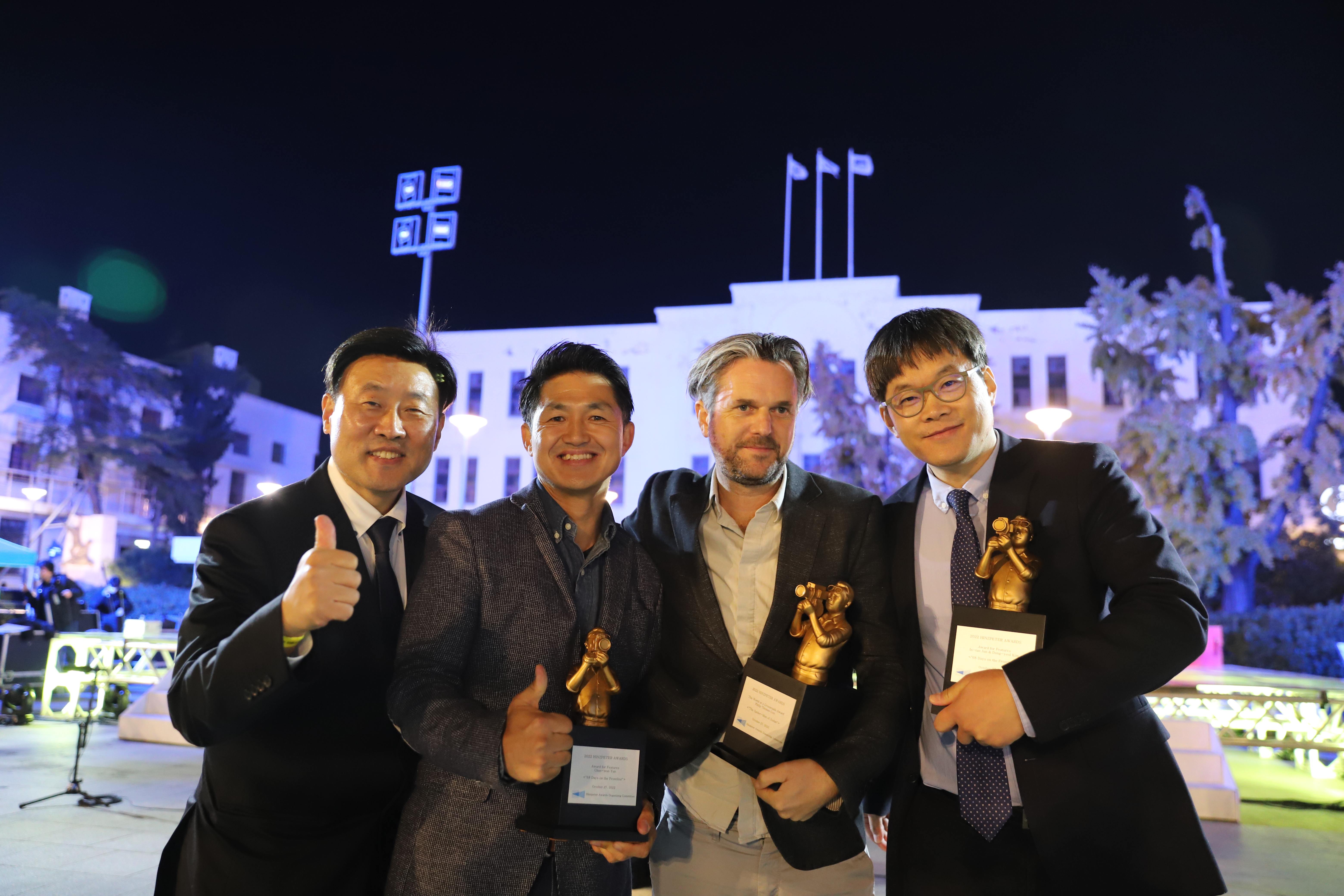
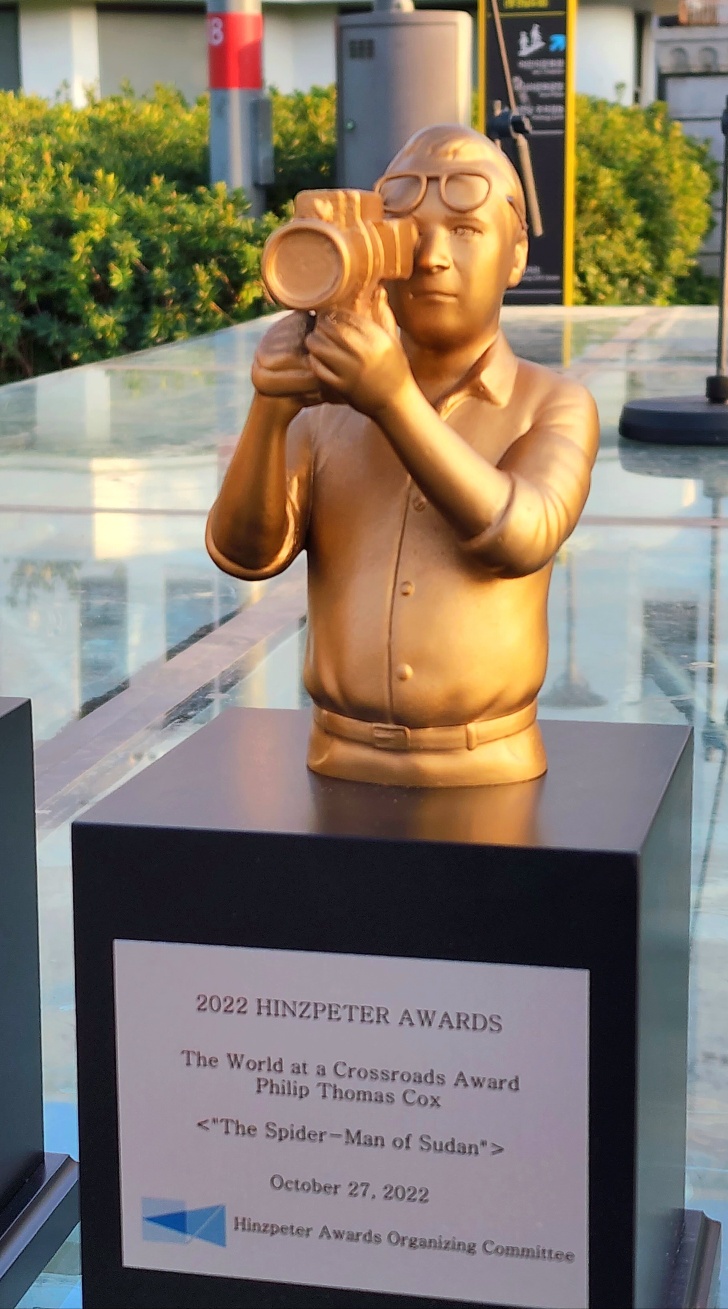
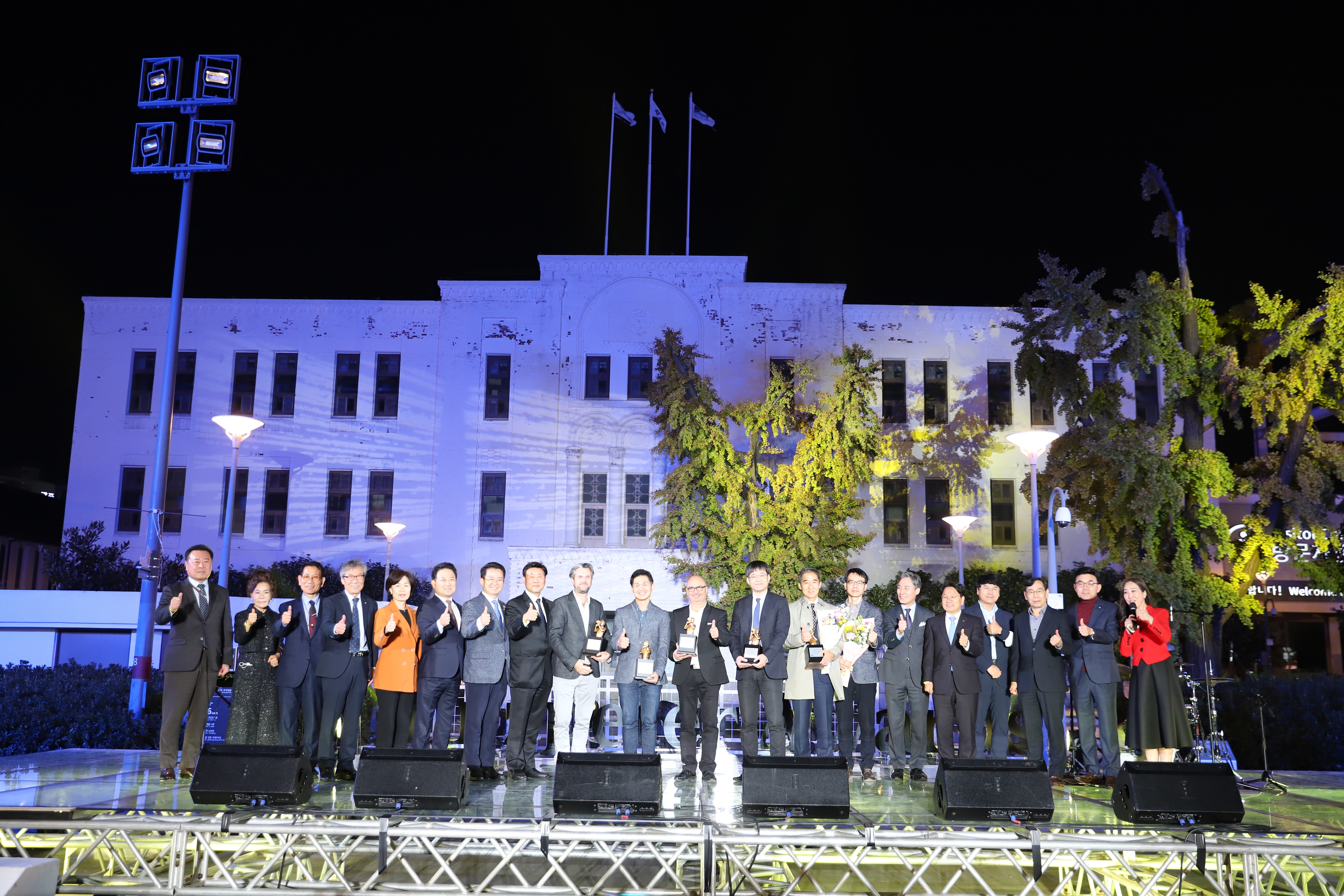
‘The World at a Crossroads’ Award



2022 Hinzpeter Awards Winners











Philip Cox, winner of the grand prize, The World at a Crossroads Award, is
a British freelance video journalist who was working in Khartoum, the capital of the Republic of the Sudan, in
October 2021 when a military coup took place. The citizens of Sudan ousted Omar al-Bashir, a dictator for 30
years, in a revolution in April 2019. While civilians and the military were preparing for the establishment of
democratic rule by forming a joint transitional government, a military coup occurred. Sudan’s citizens
protested against it and began to hold large-scale demonstrations demanding the return of democratic and
civilian rule.
One day, as the military crackdown intensified to quell civil resistance across the country, an anonymous
demonstrator dressed as Spiderman appeared in the center of the protests. He became famous on social media for
jumping off billboards, dodging tear gas, and climbing buildings, becoming a symbol of civil
resistance.
Jury members found that Cox showed the aspiration and will of Sudanese citizens to restore democracy and
create a better country through the story of the Spider-Man, who resists the military coup. In addition, the
jury found that the video showing the dangers of the protests was vivid, while the visual aesthetics through
various devices drew the story impressively. The creative storytelling had a significant quality, the jury
stated.
Takuya Watanabe joined TBS Japan in 2016 as a video journalist and has been working as a correspondent in the
London office since 2021. In August 2021, he and his team interviewed Taliban spokesperson Muhammad Suhail
Shaheen in person, for the first time in Japanese media, just before the U.S. troops withdrew from
Afghanistan. Three months later, in November, he visited Kabul, the capital city, where the Taliban had begun
to rule again, and Bamiyan, where the world’s largest stone Buddha was destroyed during the Taliban’s rule 20
years ago. He captured the condition of the Afghan people, living in poverty and amid food shortages.
The jury members found that Watanabe’s work was valuable to viewers, who could not access in-depth coverage of
the changes in Afghanistan and the international community’s questions about the Taliban in a chaotic
situation as U.S. troops withdrew and the Taliban regained power. In particular, the jury found that Watanabe
had provided information to predict the changes in Afghanistan after the withdrawal of U.S. troops through an
interview with the Taliban spokesperson. He reported on how Afghan society and people’s lives have changed
since the Taliban came to power. His reporting has aroused humanitarian interest from the international
community, particularly by covering the miserable livelihood of the country’s citizens, with as many as one
million people expected to die from starvation due to food shortages.
The jury members mentioned that the journalist took personal risks despite the unstable political situation in
Afghanistan and applauded the courage of Watanabe’s team. Their coverage of the issue of political freedom for
Afghan citizens and of cultural heritage in the Bamiyan region displayed great effort to realize democracy,
human rights, and peace. Thus, Takuya Watanabe was selected to receive this year’s Award for News, the jury
added.
On February 24, the Ukraine War broke out following Russia’s invasion.
When the war started, South Korean independent journalist Cheawan Yun
ran to the frontline at Donetsk to document the horrors of the war. The
Passport Act of South Korea has been criticized by journalists around
the world for violating the freedom of the press. It imposes legal
punishment if one enters a travel-banned country to report without
prior permission from the Ministry of Foreign Affairs. Expecting
prosecution and punishment for violations of the Passport Act, Yun’s
coverage of the war displayed his determination as a journalist to face
reality and report the truth of history. He spent 68 days in the
Ukraine war, and his coverage was not about a war seen “from above,”
focusing on political and diplomatic rhetoric and calculation, but
“from below,” with the story of ordinary people struggling at the
crossroads of life and death. A journalist who remembers the horrific
civil war that took place in his country 72 years ago, he conveyed the
desperate plea for peace from Ukrainian citizens and the pain of losing
everything in the war on streets full of fire, or in underground
shelters, hiding from the shelling. The message is, “Please stop this
tragedy!”
Producers Intae Jun and Dongyeol Kim from KBS, a public
broadcasting outlet in Korea, paid attention to the risk to life that
Yun faced and the voices of Ukrainian citizens that he covered, longing
for survival and peace. After 100 days of war in Ukraine, KBS broadcast
a special documentary about the war that was not captured by domestic
and foreign media and was not reported in the propaganda between Russia
and Ukraine.
Jury members said that “68 Days on the Frontline” tells the
story of people who have lost everything during the war, but who try to
overcome their great pain together, their voices of hope and for peace
conveyed in their ruined reality. This documentary demonstrates the
values of democracy, human rights, and peace that the Hinzpeter Awards
pursues. The jury particularly praised Yun’s courage and hard work. He
risked his life and faced the prospect of being punished under the
Korean Passport Act, all to document the horrors of the war.
The late Shireen Abu Akleh, since 1997 a Palestinian reporter for Al
Jazeera, an Arab broadcasting channel, had presented in-depth coverage
of issues between Palestine and Israel for the past 25 years. BBC
called Akleh the "most prominent veteran among Arab journalists." She
reported on the second Intifada Resistance Movement in 2000, the attack
on the Jenin Refugee Camp in 2002, and the long-term Palestinian
prisoners in Shikma Prison in 2005. The late Akleh was killed by Israel
Defense Forces.
Majdi Bannoura joined Al Jazeera as a video journalist in the
same year as Akleh. They worked together as field reporters for 24
years. Bannoura has been recording the Israeli military’s oppression of
human rights and violence against the Palestinian people and their
resistance movement. Bennoura, who was covering the Israeli invasion of
Ramallah in 2018 and the Palestinian protests against it, was wounded
by a tear gas canister fired by Israeli forces. At that time, Arab
media organizations and international human rights groups who heard the
news of the incident released a protest statement stating that “Israeli
authorities must guarantee the freedom and safety of journalists.” They
demanded measures to prevent a recurrence.
Journalists such as the late Akleh and video journalist
Bannoura risk their lives to fulfill their mission as journalists and
to tell the truth in the fields of democracy, human rights, and peace
around the world. They fight the tyranny that threatens the freedom of
the press. To commemorate, encourage, and support such journalists from
all over the world who carry their cameras and microphones despite
shock and pain, the jury selected the late Shireen Abu Akleh and Madji
Bannoura as recipients of the May Gwangju Award.